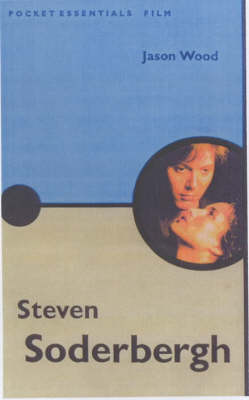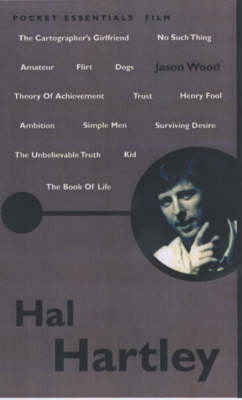Pocket Essentials
2 total works
Who is Soderbergh? Currently Hollywood's hottest hot shot, Soderbergh burst onto the independent scene with his provocative, multi-award winning feature debut sex, lies and videotape in 1989. With the film world seemingly at his feet the guy from Baton Rouge committed critical and commercial hara-kiri, producing a black and white film about the life of writer Franz Kafka that fell foul of studios and audiences alike. The critics liked it though and they were to stay with him through a lean period, which produced increasingly personal, cine-literate projects which very few people saw.
Out of favour in Tinseltown, Soderbergh continued to plough his own furrow, producing numerous notable Indie pics along the way. Though disillusioned with his craft, it was arguably during this period that he produced some of his best work. Thankfully the head honchos at Universal had kept Soderbergh's number on speed dial and when a director was needed to give a little sparkle to Out Of Sight, Soderbergh got the call. Back in the big time - but very much on his own terms - the rest as they say is history for the self-proclaimed luckiest bastard you ever saw.
As well as an introductory essay, this Pocket Essential reviews and analyses each of Soderbergh's films. There's a handy reference section listing all the Soderbergh related publications- and there ain't many- and a full filmography including Soderbergh's tireless work as a producer and cameraman.
Hal Hartley - the Long Island born, blue-collar director and a touchstone figure in terms of contemporary American Independent cinema, burst onto the scene with The Unbelievable Truth in 1989. Funded by his benevolent bosses at the TV production company where he worked answering the phone, the dialogue driven comic-drama immediately established Hartley as a significant new talent. The crisp cinematography and playful approach to editing a la French New Wave formed Hartley's distinctive visual style. Trust and Simple Men expanded on his thematic concerns - the clash between culture and class, the journey toward selfhood and romantic fulfilment and the ennui of Suburban small-town life - and contributed to the sense that Hal Hartley's work existed in an exciting new genre all of its very own.
Cinephile Hartley not only displays a truly European sensibility but also harks back to the work of American auteurs such as Howard Hawks and Preston Sturges, whose witty, snappy inter-sexual banter and small town mores emerge again and again in Hartley's films. Hartley has come to influence a whole new legion of American independent directors, with Richard Linklater and Kevin Smith professing themselves ardent admirers. Showing scant regard for the vagaries of the mainstream, the highly productive and multi-tasking director has repeatedly expressed his fascination for what he terms 'the plastics of the medium', producing several shorter experimental works - often filmed on digital video - that explore the infinite possibilities of the film medium.

